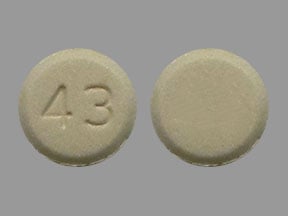
Fluoxetine (pmdd) Coupons & Savings Card – Discount Prices from $7.66
Fluoxetine is prescribed for managing specific mental and mood conditions, including depression, panic attacks, and obsessive-compulsive disorder. Additionally, it is used to treat bulimia, an eating disorder, and premenstrual dysphoric disorder, a severe form of premenstrual syndrome. As a selective serotonin reuptake inhibitor (SSRI), Fluoxetine functions by restoring the balance of serotonin, a natural substance in the brain.
Our coupons are free to use. Before paying, show the pharmacist your Fluoxetine (pmdd) savings card to get your free discount. Use our filters below to edit the prescription box to match your needs. The Fluoxetine (pmdd) prices will update based on your prescription needs. Above our Fluoxetine (pmdd) coupons, you can change your location to see pharmacy prices and costs in other areas. We're here to help you buy Fluoxetine (pmdd) at the lowest price with our prescription discount card.
My prescription
Edit
10MG, Fluoxetine (pmdd) (30 Tablets)
Select pharmacy

CVS
$30.04
COUPON PRICE
Walmart
$7.66
COUPON PRICE
Albertsons
$17.09
COUPON PRICE
Walgreens
$23.24
COUPON PRICEFluoxetine (pmdd) savings card
Show this card to your pharmacist
Walmart
$7.66
BIN
ID
PCN
GRP
019876
LH09E4C3C6
CHIPPO
LHX
Powered by
Fluoxetine is prescribed for managing specific mental and mood conditions, including depression, panic attacks, and obsessive-compulsive disorder. Additionally, it is used to treat bulimia, an eating disorder, and premenstrual dysphoric disorder, a severe form of premenstrual syndrome. As a selective serotonin reuptake inhibitor (SSRI), Fluoxetine functions by restoring the balance of serotonin, a natural substance in the brain.
Our coupons are free to use. Before paying, show the pharmacist your Fluoxetine (pmdd) savings card to get your free discount. Use our filters below to edit the prescription box to match your needs. The Fluoxetine (pmdd) prices will update based on your prescription needs. Above our Fluoxetine (pmdd) coupons, you can change your location to see pharmacy prices and costs in other areas. We're here to help you buy Fluoxetine (pmdd) at the lowest price with our prescription discount card.
Fluoxetine (pmdd) dosage forms
Use our Fluoxetine (pmdd) 10MG coupon with prices from $7.66 for 30 Tablets. You can also use our Fluoxetine (pmdd) 10MG coupon with prices from $2.67 for 1 Tablet. We have a Fluoxetine (pmdd) 10MG coupon with prices from $7.32 for 28 Tablets. You can use our Fluoxetine (pmdd) 10MG coupon with prices from $21.98 for 100 Tablets.
Dosage Quantity Price from Per unit 10MG 30 Tablets $7.66 $0.26 10MG 1 Tablet $2.67 $2.67 10MG 28 Tablets $7.32 $0.26 10MG 100 Tablets $21.98 $0.22 10MG 1000 Tablets $84.82 $0.09 20MG 1 Tablet $2.66 $2.66 20MG 28 Tablets $6.85 $0.24 20MG 30 Tablets $7.16 $0.24 20MG 100 Tablets $24.55 $0.24 20MG 1000 Tablets $189.49 $0.19
| Dosage | Quantity | Price from | Per unit |
|---|---|---|---|
| 10MG | 30 Tablets | $7.66 | $0.26 |
| 10MG | 1 Tablet | $2.67 | $2.67 |
| 10MG | 28 Tablets | $7.32 | $0.26 |
| 10MG | 100 Tablets | $21.98 | $0.22 |
| 10MG | 1000 Tablets | $84.82 | $0.09 |
| 20MG | 1 Tablet | $2.66 | $2.66 |
| 20MG | 28 Tablets | $6.85 | $0.24 |
| 20MG | 30 Tablets | $7.16 | $0.24 |
| 20MG | 100 Tablets | $24.55 | $0.24 |
| 20MG | 1000 Tablets | $189.49 | $0.19 |
